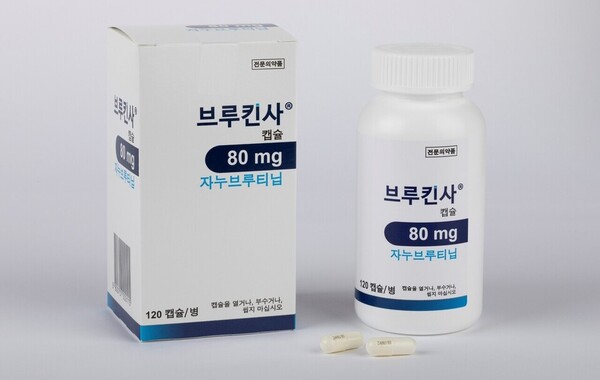The second-generation bruton tyrosine kinase (BTK) inhibitor Brukinsa (zanubrutinib), developed by BeiGene, has cleared the threshold of the Pharmaceutical Reimbursement Evaluation Committee (PREC) after a second attempt at expanded coverage.
At the same meeting, AstraZeneca's asthma drug Fasenra (benralizumab) and CSL Behring's hemophilia B drug Idelvion (albutrepenonacog alfa) also won the committee’s recognition as appropriate for reimbursement.
On Thursday, the Health Insurance Review and Assessment Service (HIRA) released the results of the third PREC meeting deliberations.

The committee recognized the appropriateness of reimbursing Brukinsa's' for treating mantle cell lymphoma (MCL), chronic lymphocytic leukemia (CLL), or small lymphocytic lymphoma (SLL).
Brukinsa is a second-generation BTK inhibitor that targets bruton tyrosine kinase (BTK). The U.S. Food and Drug Administration (FDA) first approved it in February 2022 for treating MCL and Waldenström macroglobulinemia (WM).
Later, it expanded to include marginal zone lymphoma (MZL) and chronic lymphocytic leukemia/small lymphocytic lymphoma (CLL/SLL).
However, WM is currently the only indication of Brukinsa with an insurance benefit. BeiGene has applied for coverage of the MCL indication twice in the past but was unsuccessful both times. It has reapplied for MCL coverage with the newly approved CLL/SLL indication. This is the third time in three years that BeiGene has passed the PREC for MCL.
According to sources, Brukinsa's reimbursement has yet to undergo drug price negotiated with the National Health Insurance Service (NHIS), but the company remains hopeful.
BeiGene is known to be a cooperative company in terms of drug prices, and Brukinsa is already cheaper than Imbruvica (ibrutinib), a first-generation BTK inhibitor.
At the meeting, the committee approved a proposal to reimburse Fasenra and Idelvion.
Fasenra, a biologic approved for the treatment of severe eosinophilic asthma, will be eligible for reimbursement nearly five years after its June 2019 approval.
Idelvion, an extended half-life (EHL) formulation approved for treating hemophilia B, crossed the reimbursement threshold in March 2020, four years after its initial approval.
These treatments will be reimbursed after negotiating drug prices with the NHIS and receiving approval from the HIRA under the Ministry of Health and Welfare.
Related articles
- Based on improved global status, BeiGene targets US market in earnest
- BeiGene applies for insurance benefits for esophageal cancer drug Tevimbra
- 2 new JAK inhibitors, Jyseleca and Jakavi, get insurance benefits this month
- AZ’s Tagrisso moves closer to expanded reimbursement as 1st-line cure of lung cancer

